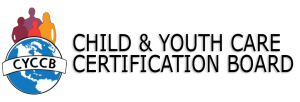II. Cultural & Human Diversity
Professional practitioners actively promote respect for cultural and human diversity. The Professional Practitioner seeks self understanding and has the ability to access and evaluate information related to cultural and human diversity. Current and relevant knowledge is integrated in developing respectful and effective relationships and communication and developmental practice methods. Knowledge and skills are employed in planning, implementing and evaluating respectful programs and services, and workplaces.
A. Foundational Knowledge
The professional practitioner is well versed in current research and theory related to cultural and human diversity including the eight major factors which set groups apart from one another, and which give individuals and groups elements of identity: age, class, race, ethnicity, levels of ability, language, spiritual belief systems, educational achievement, and gender differences.
- Cultural structures, theories of change, and values within culture variations
- Cross cultural communication
- History of political, social, and economic factors which contribute to racism, stereotyping, bias and discrimination
- Variations among families and communities of diverse backgrounds
- Cultural and human diversity issues in the professional environment
B. Professional Competencies
- Cultural and Human Diversity Awareness and Inquiry
- describe own biases
- describe interaction between own cultural values and the cultural values of others
- describe own limitations in understanding and responding to cultural and human differences and seeks assistance when needed
- recognize and prevent stereotyping while accessing and using cultural information
- access, and critically evaluate, resources that advance cultural understandings and appreciation of human diversity
- support children, youth, families and programs in developing cultural competence and appreciation of human diversity
- support children, youth, families and programs in overcoming culturally and diversity based barriers to services
- Relationship and Communication Sensitive to Cultural and Human Diversity
- adjust for the effects of age, cultural and human diversity, background, experience, and development on verbal and non-verbal communication
- describe the non-verbal and verbal communication between self and others (including supervisors, clients, or peer professionals)
- describe the role of cultural and human diversity in the development of healthy and productive relationships
- employ displays of affection and physical contact that reflect sensitivity for individuality, age, development, cultural and human diversity as well as consideration of laws, regulations, policies, and risk
- include consideration of cultural and human diversity in providing for the participation of families in the planning, implementation and evaluation of services impacting them
- give information in a manner sensitive to cultural and human diversity
- contribute to the maintenance of a professional environment sensitive to cultural and human diversity
- establish and maintain effective relationships within a team environment by:
- promoting and maintaining professional conduct;
- negotiating and resolving conflict;
- acknowledging and respecting cultural and human diversity; and
- supporting team members
- Developmental Practice Methods Sensitive to Cultural and Human Diversity
- integrate cultural and human diversity understandings and sensitivities in a broad range of circumstances
- design and implement programs and planned environments, which integrate developmental, preventive, and/or therapeutic objectives into the life space, through the use of methodologies and techniques sensitive to cultural and human diversity
- provide materials sensitive to multicultural and human diversity
- provide an environment that celebrates the array of human diversity in the world through the arts, diversity of personnel, program materials, etc.
- recognize and celebrate particular calendar events which are culturally specific
- encourage the sharing of such culture specific events among members of the various cultural groups
- design and implement group work, counseling, and behavioral guidance with sensitivity to the client’s individuality, age, development, and culture and human diversity
- demonstrate an understanding of sensitive cultural and human diversity practice in setting appropriate boundaries and limits on behavior, including risk management decisions
